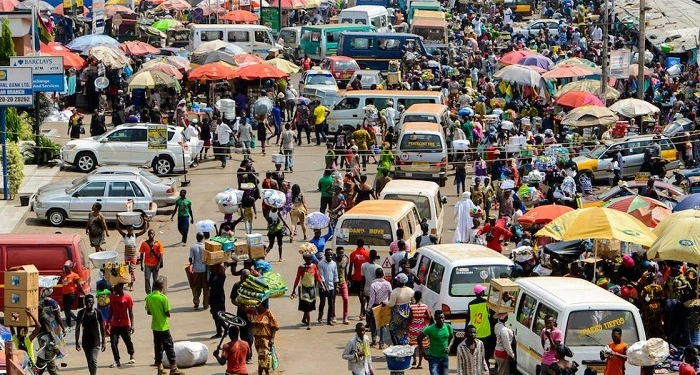Unified Economic Space, Fair Credit Score: How Africa Can Develop Rapidly In Next 40 Years
He was speaking at the launch of Professor Anis H Bajrektarevic’s Certified Economic Diplomat programme at the Institute of Economics and Finance in Ghana.
- Advertisement -
Africa can achieve very rapid development in the next 40 years – in the same way China did so during 1980-2020 and India has been doing so today since around 2000, said economist Jeffrey Sachs. He was speaking at an online convention on August 10, 2024.
He was speaking at the launch of Professor Anis H Bajrektarevic’s Certified Economic Diplomat programme at the Institute of Economics and Finance in Ghana.
- Advertisement -
“Back in 1980, China was impoverished and not even on the world’s radar screen economically. In fact, its poverty rate was higher than in Africa today,” said the former special advisor to three consecutive United Nations secretaries-general.
- Advertisement -
“However, China opened up and took important policy measures. Over the next 40 years, not only has it become a high-income economy, but also the world’s largest economy in total GDP measured at purchasing-power parity (PPP).”
The China model can be good for Africa too, Sachs explained. Together with Kevin Urama, chief economist of the African Development Bank (AfDB), he has been developing a strategy for breaking the poverty cycle in Africa. The team led by the AfDB is set to present their proposal for Africa’s rapid growth at the African Union Summit in February 2025.
Africa has 1.4 billion people, roughly the same population as that of China and India. While India is about 15 to 20 years behind China in its economic trajectory, it has also been experiencing very high growth. China started emerging in 1980 and India around 2000. For Africa, that time is now.
However, Sachs understood it would take more than a big population to drive rapid growth and was careful to highlight the significant distinction between the three entities. “There is one big difference. Following the colonial period, India remained one large country (actually, British India became three countries: India, Pakistan, and later Bangladesh).
China, of course, remained one unified state despite encountering Japan’s imperialistic ambitions and the century of reckless behavior by the European powers. Africa, on the other hand, has to deal with the ongoing difficulties associated with its colonial legacy, notably Europe’s division of Africa into 55 states.”
Sachs proceeded to explain that the 55 individual African states are too small on their own to achieve the kind of global role and competitiveness they need. However, if Africa truly creates a political, economic, financial, and eventually monetary union, then it will be able to emulate the great successes of China and India.
With a single market, a unified financial system, and increasing monetary integration, Africa will be well positioned to create a truly unified economic space, also deeply interconnected by transboundary infrastructure (for power, fibre, roads, rail, shipping and ecosystem management). Moreover, with a strong union, Africa will be positioned to play a global diplomatic role as well, helping to lead global decision-making in key international forums.
The African Union (AU) was made a permanent member of the G20 in Delhi last year, with India’s G20 Presidency. This finally gave the African countries a major voice in deliberations on major global economic issues.
- Advertisement -
An integrated and ambitious AU can achieve the kind of growth that China and India have experienced – Jeffrey Sachs.
Africa needs a large internal market and diplomatic presence, he added, the latter made possible now with its representation at the G20 (which he hopes will soon be relabeled appropriately as the G21) and UN. The continent also needs high investments across all major classes of capital, with human capital being the most important, hence the need to provide universal quality education.
It also needs rapid electrification and digital access, so that every household can get lit up and online, Sachs indicated.
Last but hardly least, Sachs said that Africa needs international loan financing with interest rates comparable to those granted to the US. “The irony here is, the US actually has a higher debt-GDP ratio than most African countries (and other G7 countries such as Italy and Japan have even higher debt-GDP ratios), yet the credit rating agencies have assigned African sovereign borrowers very bad credit ratings.”
However, Africa has higher growth potential than the high-income countries, and typically lower ratios of debt to GDP, the economist highligted.
The rating agencies are wrong in their methodology, and the methodology and ratings need to be fixed. If Africa cannot borrow on reasonable terms — meaning low interest rates and long-term maturities — then Africa will remain poor.
Time and again, Sachs has advocated for a multipolar world where parameters for honest dialogues between developing and developed countries could be established, and meaningful strides towards a more prosperous, inclusive and sustainable world could be made.
“I want a world of regions dealing with one another. We are one world, interconnected, and we ought to make peace. The mindset of the US is such that it has to be number one and everyone has to follow what it says – that creates a lot of friction,” Sachs lamented.
“I like the BRICS. Now expanded to 10 countries, it comprises around 46 per cent of the world population and 36 per cent of the world GDP (PPP). It’s a very good group that has come about because its members do not want to be bossed around by the US,” he added.
Lily Ong is an APAC-based geopolitical risk analyst who also conducts global risk and security investigations for a Fortune 500 client.
Source:norvanreports.com
- Advertisement -


